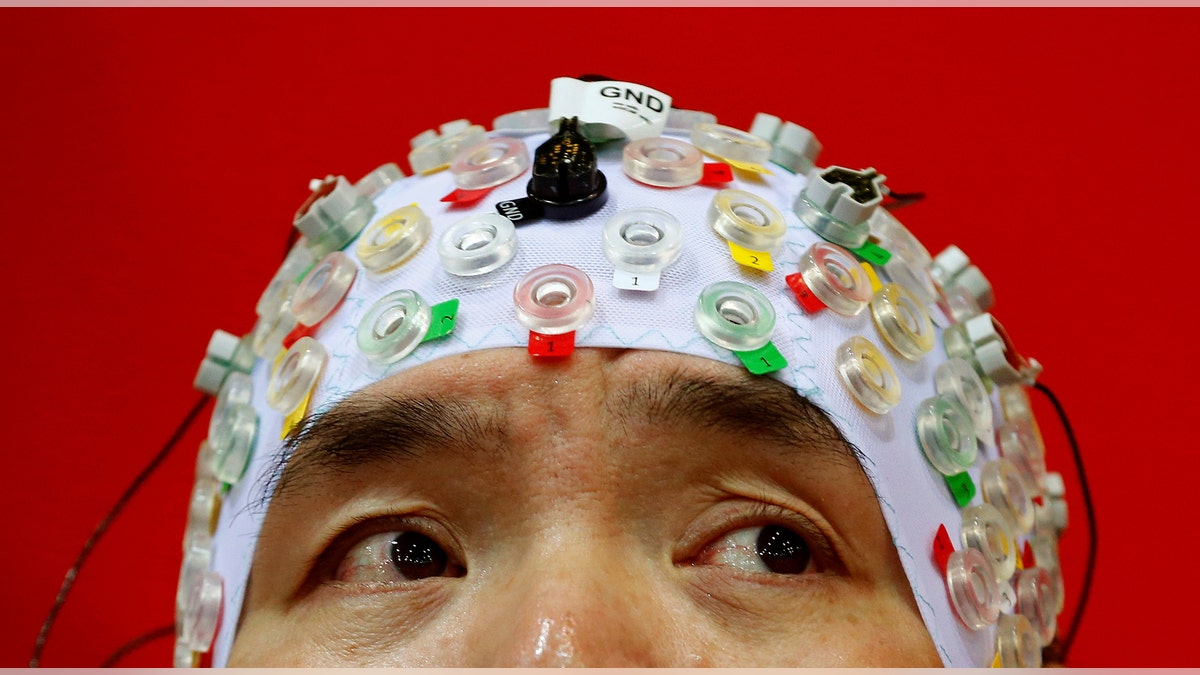
File photo: Hong Gi Kim of South Korea competes during the Brain-Computer Interface Race (BCI) at the Cybathlon Championships in Kloten, Switzerland October 8, 2016. (REUTERS/Arnd Wiegmann)
From medical applications like helping dermatologists diagnose skin cancer to teaching robots to get a better grip on the world around them, deep learning neural networks can carry out some pretty impressive tasks. Could mind reading be among them?
The folks at Carnegie Mellon University certainly think so -- and theyve got the research to back up their theories.What CMU scientists have been working on is a system that can apparently read complex thoughts based on brain scans, possibly even interpreting complete sentences.
This involved gathering data from a functional magnetic resonance imaging (fMRI) machine, and then using AI machine learning algorithms to pinpoint -- and sometimes reverse-engineer -- the building blocks the brain uses to construct complex thoughts.
"One of the big advances of the human brain was the ability to combine individual concepts into complex thoughts, to think not just of 'bananas,' but 'I like to eat bananas in evening with my friends,'" said psychology professor Marcel Just, the lead author of the study, in a press release. "We have finally developed a way to see thoughts of that complexity in the fMRI signal. The discovery of this correspondence between thoughts and brain activation patterns tells us what the thoughts are built of."
More From Digital Trends
In the CMU study, the team was able to demonstrate different brain activations being triggered according to 240 complex events, ranging from individuals and settings to types of social interaction or physical actions. Using the smart algorithm, the team could discern what was being thought about at any given time -- and even the order of a particular sentence. After training the algorithm on 239 of the 240 sentences and their corresponding brain scans, the researchers were able to predict the final sentence based only on the brain data. It was able to do this with an impressive 87 percent accuracy, as well as doing the opposite: being given sentence information and then outputting an accurate image of how the brain would be activated during that sentence.
We're guessing this doesn't bode well for our eventual face-off with Skynet!
A paper describing the work, titled Predicting the Brain Activation Pattern Associated With the Propositional Content of a Sentence, is published in the new issue of the journal Human Brain Mapping.
